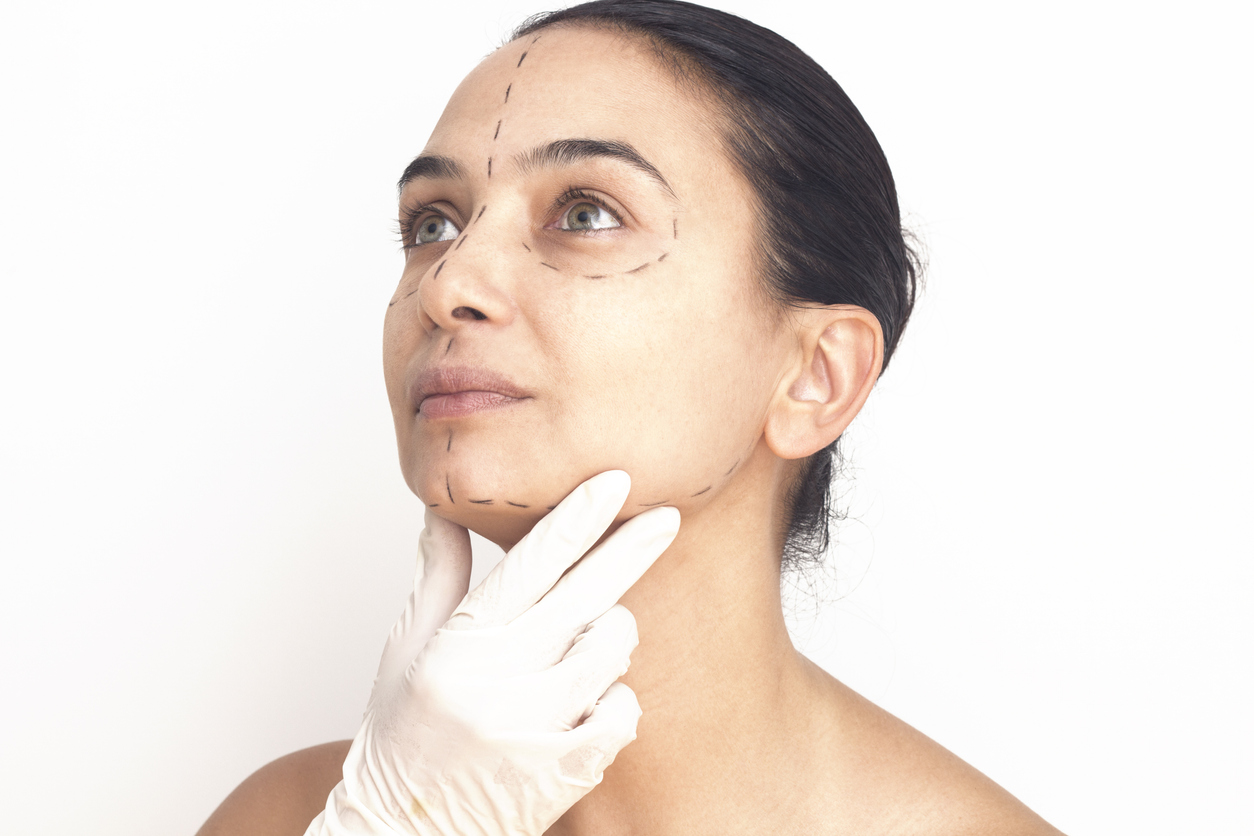
Choosing the right surgeon for your facelift is a decision that significantly impacts the outcome of your procedure and your overall satisfaction. This decision becomes even more crucial when considering advanced techniques like the Deep Plane Facelift, which requires a high level of skill, precision, and artistic sensibility. In this comprehensive guide, we will discuss the critical factors to consider when selecting a surgeon and how to determine if they are truly a specialist in Deep Plane Facelift techniques.
Understanding the Deep Plane Facelift
Before delving into the selection process, it’s important to understand what sets the Deep Plane Facelift apart from other facelift techniques.
The Deep Plane Facelift: The Deep Plane Facelift is an advanced surgical technique that lifts and repositions the deeper layers of the face, including the muscle and fat, to achieve a more natural and long-lasting rejuvenation. Unlike the traditional facelift, which primarily tightens the skin, the Deep Plane Facelift addresses the underlying structures, resulting in a more youthful and balanced appearance. This technique is particularly effective for midface sagging, deep nasolabial folds, and jowls.
Steps to Selecting the Right Surgeon
- Research and Referrals: Begin your search by gathering information from reliable sources. Ask for recommendations from friends, family, or healthcare professionals. Online forums and patient reviews can also provide valuable insights into the experiences of others who have undergone similar procedures.
- Check Credentials: Verify the surgeon’s credentials. Look for board certification in plastic surgery or facial plastic surgery from recognized boards such as the American Board of Facial Plastic and Reconstructive Surgery (ABFPRS). Board certification ensures that the surgeon has completed rigorous training and adheres to high standards of practice.
- Evaluate Experience: Experience is crucial when it comes to facelift surgery, especially the Deep Plane Facelift. Look for a surgeon who has extensive experience performing facelifts and specializes in the Deep Plane technique. Ask how many Deep Plane Facelifts they have performed and over what period.
- Review Before-and-After Photos: Reviewing before-and-after photos of previous patients is one of the best ways to assess a surgeon’s skill and aesthetic sensibility. Pay attention to patients with similar facial features and aging concerns as yours. Look for natural-looking results with minimal visible scarring.
- Read Patient Reviews and Testimonials: Patient reviews and testimonials can provide insights into the surgeon’s expertise, bedside manner, and the overall patient experience. Look for consistent positive feedback and note any recurring issues or concerns raised by patients.
Consultation: The Key to Making an Informed Decision
Schedule Multiple Consultations: It’s wise to consult with multiple surgeons before making your final decision. This allows you to compare their expertise, approach, and recommendations. Take note of how each surgeon addresses your concerns and questions.
Assess Communication and Rapport: Effective communication and a good rapport with your surgeon are essential for a successful outcome. During the consultation, observe how the surgeon listens to your goals, explains the procedure, and answers your questions. You should feel comfortable and confident in their care.
Discuss the Deep Plane Facelift Technique: Ensure that the surgeon is well-versed in the Deep Plane Facelift technique. Ask them to explain the procedure in detail, including how it differs from other facelift techniques and the specific benefits it offers. A true specialist will be able to articulate the nuances of the technique and how it can address your unique concerns.
Inquire About the Surgical Plan: Ask the surgeon to outline their surgical plan for your facelift. This should include the specific areas they will address, the type of anesthesia used, the expected duration of the surgery, and the recovery process. A detailed and personalized surgical plan indicates that the surgeon has carefully considered your individual needs.
Evaluate the Surgical Facility: The quality of the surgical facility is another important consideration. Ensure that the surgery will be performed in an accredited facility that meets high standards for safety and cleanliness. Accredited facilities are regularly inspected to ensure they comply with rigorous safety and quality standards.
How to Tell if a Surgeon is a Specialist in Deep Plane Facelift Techniques
- Verify Specialized Training: A surgeon specializing in Deep Plane Facelift techniques should have specific training in this area. Ask about their training background, including fellowships or specialized courses they have completed that focus on the Deep Plane Facelift.
- Look for Publications and Lectures: Surgeons who are experts in their field often contribute to medical literature and lecture at professional conferences. Look for publications in reputable journals or presentations at industry conferences that focus on the Deep Plane Facelift. This indicates a high level of expertise and a commitment to staying current with advancements in the field.
- Ask About Membership in Professional Organizations: Membership in professional organizations such as the American Academy of Facial Plastic and Reconstructive Surgery (AAFPRS) can indicate a surgeon’s commitment to maintaining high standards and continuing education.
- Seek Out Peer Recognition: Recognition by peers can be a strong indicator of a surgeon’s expertise. Awards, honors, and leadership positions within professional organizations suggest that the surgeon is respected and trusted by their colleagues.
- Evaluate the Range of Procedures Offered: A true specialist in Deep Plane Facelift techniques will often focus on facial procedures rather than offering a broad range of unrelated surgeries. This focus allows them to hone their skills and stay current with the latest advancements in facial rejuvenation.
Questions to Ask During Your Consultation
1. How many Deep Plane Facelifts have you performed?
This question helps gauge the surgeon’s experience with this specific technique.
2. Can you provide before-and-after photos of patients who have had the Deep Plane Facelift?
Reviewing these photos allows you to assess the surgeon’s skill and the quality of their work.
3. What is your complication rate for the Deep Plane Facelift?
Understanding the surgeon’s complication rate provides insight into their safety record and surgical proficiency
4. What type of anesthesia will be used, and who will administer it?
Knowing about the anesthesia plan and the qualifications of the anesthesia provider is crucial for your safety.
5. What is the expected recovery process, and how long will it take to see the final results?
This information helps you prepare for the recovery period and manage your expectations regarding the timeline for results.
6. How do you handle complications or unsatisfactory results?
Understanding the surgeon’s approach to addressing complications or revisions is important for your peace of mind.
The Importance of Trust and Comfort
Choosing a surgeon is not just about verifying credentials and expertise; it’s also about feeling confident and comfortable with your choice. Trust your instincts during the consultation process. If a surgeon makes you feel rushed, dismisses your concerns, or doesn’t take the time to explain things clearly, it may be a sign to look elsewhere.
Post-operative care and Follow-Up
- Comprehensive Post-Operative Care: A dedicated surgeon will provide thorough post-operative care to ensure a smooth recovery. This includes detailed instructions for wound care, medication management, and activity restrictions. They should also be available to address any concerns or complications that may arise.
- Regular Follow-Up Appointments: Regular follow-up appointments are essential to monitor your progress and ensure proper healing. These visits allow the surgeon to assess the results, address any issues, and provide guidance on maintaining your new appearance.
- Long-Term Relationship: Building a long-term relationship with your surgeon can be beneficial for maintaining your results and addressing any future concerns. A surgeon who is invested in your long-term well-being will provide ongoing support and recommendations for maintaining a youthful appearance.
Conclusion
Selecting the right surgeon for your facelift, particularly a Deep Plane Facelift, is a critical decision that requires careful consideration and research. By verifying credentials, evaluating experience, and ensuring specialized expertise, you can find a surgeon who is capable of delivering exceptional results. Remember to trust your instincts and choose a surgeon with whom you feel comfortable and confident. With the right surgeon, you can achieve a natural, youthful rejuvenation that enhances your appearance and boosts your confidence.
By thoroughly researching and consulting with multiple surgeons, you can ensure that you make an informed decision that will lead to a successful and satisfying facelift experience.


